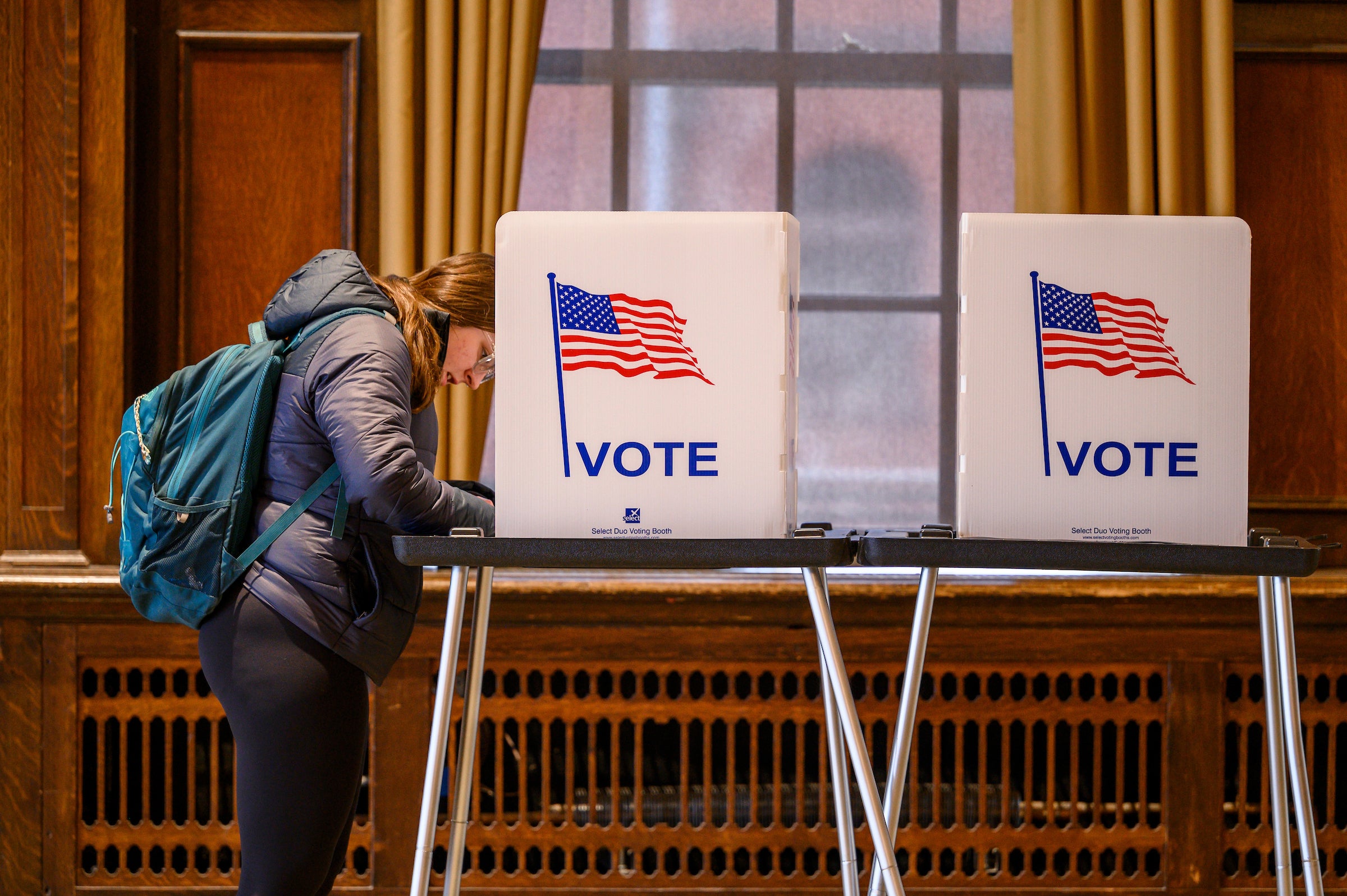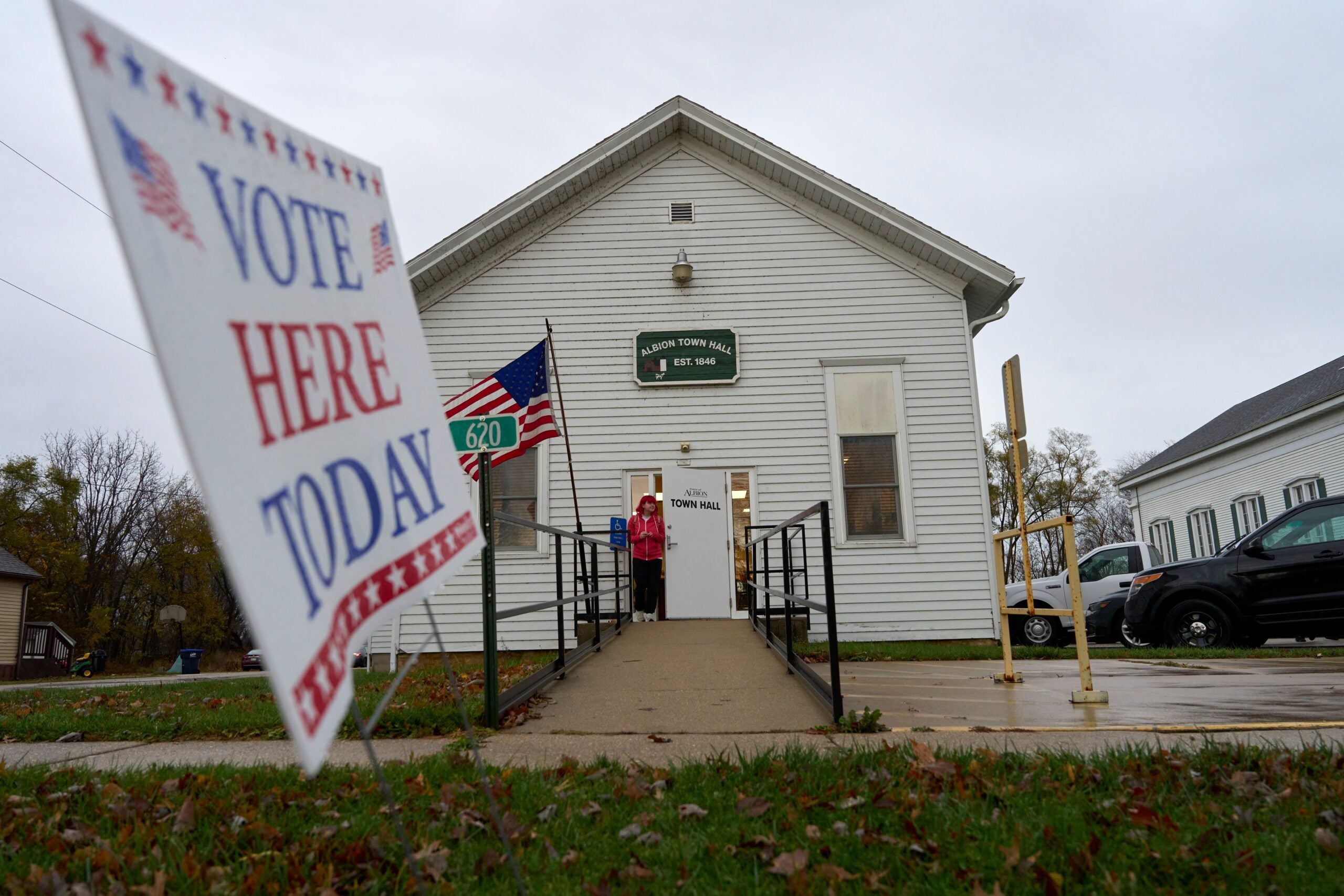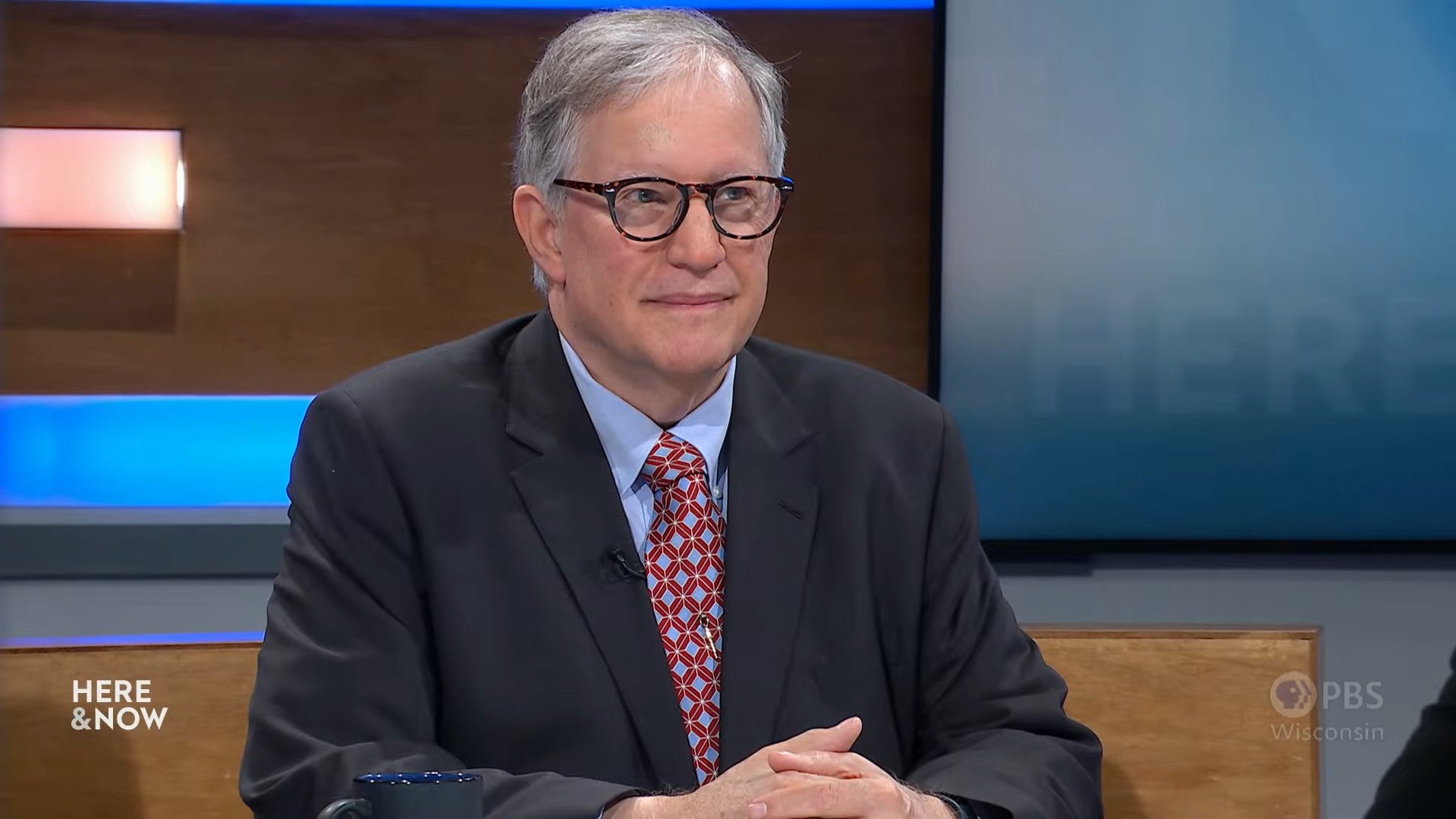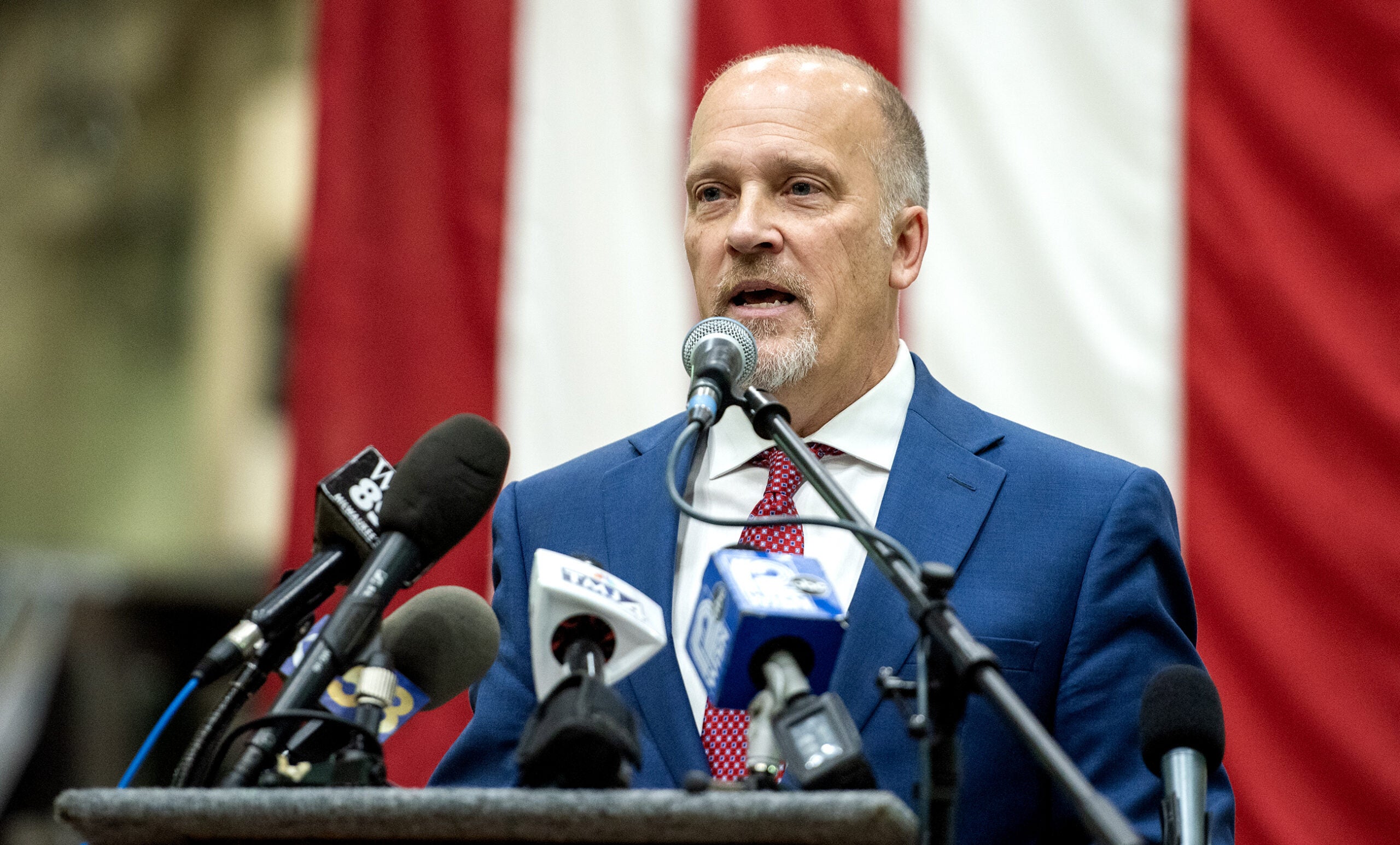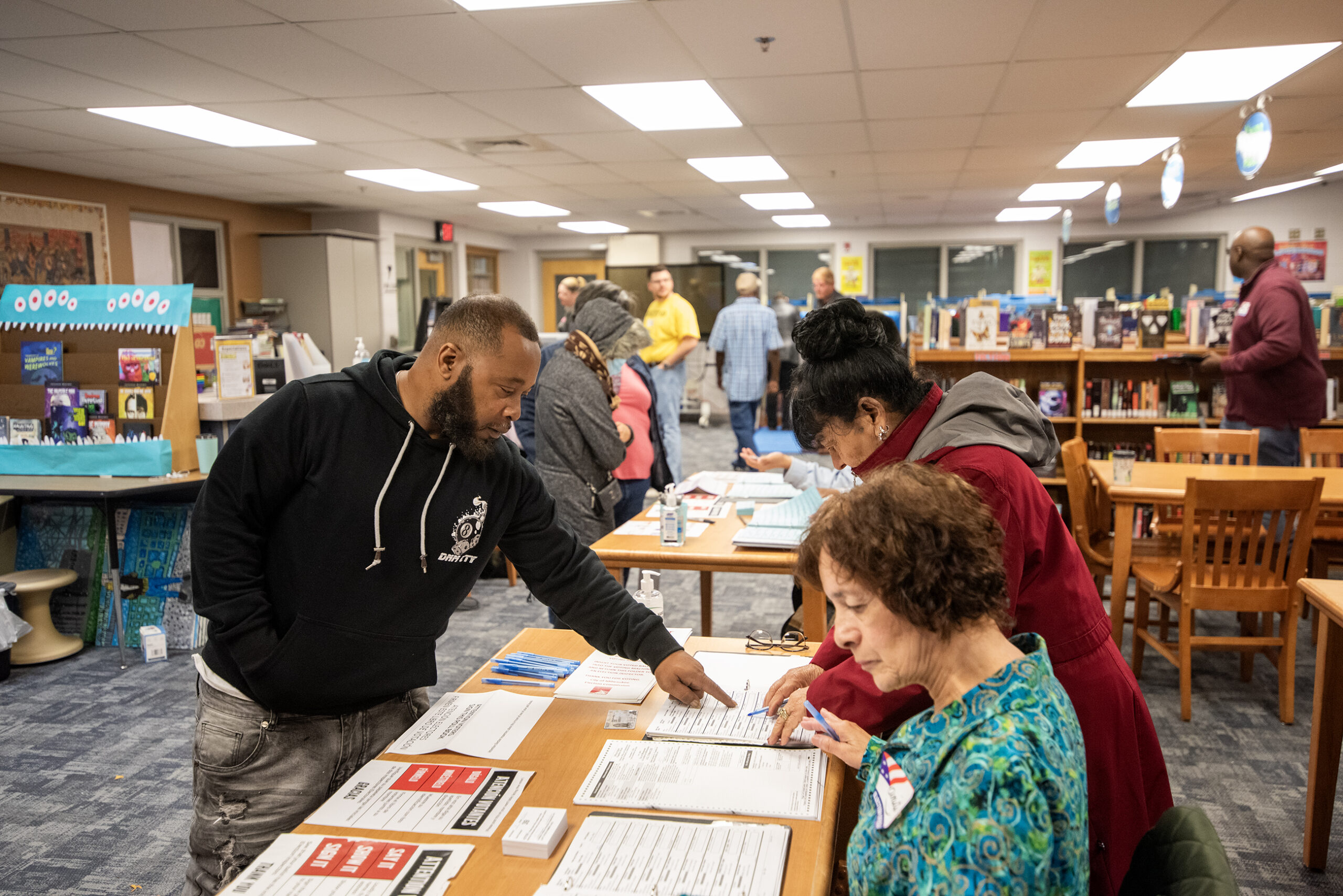The future of American democracy has been a repeated talking point in this year’s presidential race.
Democratic Vice President Kamala Harris has painted former Republican President Donald Trump as a threat to democracy because of his unsupported claims that he won the 2020 election and his continued efforts to question the integrity of elections.
Trump has pushed back on this criticism, and instead presents himself as someone who will “rescue” the United States from undocumented immigrants, calling Election Day “liberation day in America” during a rally outside of Green Bay on Wednesday.
News with a little more humanity
WPR’s “Wisconsin Today” newsletter keeps you connected to the state you love without feeling overwhelmed. No paywall. No agenda. No corporate filter.
This election year, WPR is asking people across the state what issues they care about as they head to the polls. Preserving democracy was one of the issues identified as a top concern for voters WPR talked to during an event in Viroqua, a city of about 4,500 people in mostly-rural southwestern Wisconsin.
WPR asked candidates for the 32nd state Senate district, which includes all or parts of La Crosse, Monroe, Trempealeau and Vernon counties; and the 96th Assembly district, which covers all of Vernon County and the southside of the City of La Crosse, about how they would work to protect democracy.
32nd Senate District candidates say confidence in elections is critical
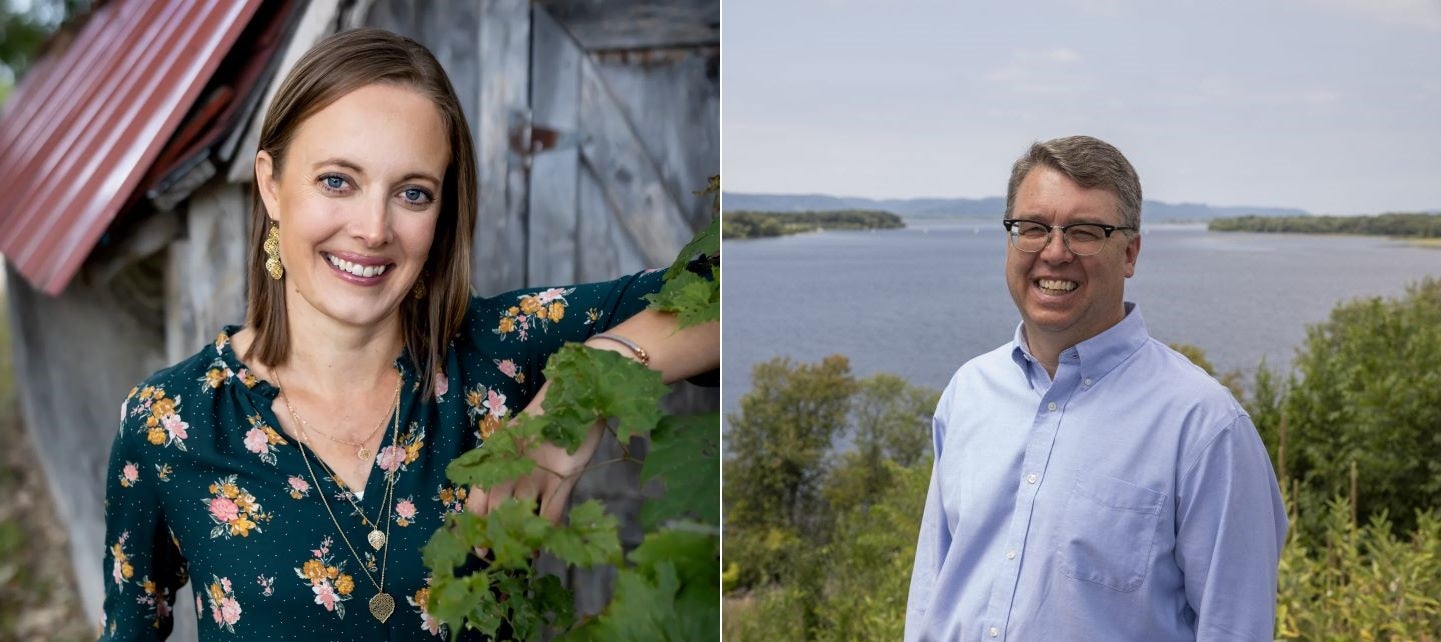
Democratic state Sen. Brad Pfaff of Onalaska said he was shocked by the Jan. 6 insurrection at the U.S. Capitol after his first election to the 32nd Senate seat. Supporters of former President Donald Trump attacked the Capitol in an attempt to stop the certification of the 2020 election results.
Heading into this year’s election, Pfaff said continued questions about the voting integrity has caused greater anxiety among voters. Pfaff said he trusts municipal clerks and poll workers to carry out secure elections in Wisconsin.
“With all this money in politics, and with how our media landscape has changed, we still need to recognize that every individual has a voice and that they have a vote,” Pfaff said. “I’m glad to know that the people of this district want their representatives to fight for democracy.”
Pfaff said he has tried to “build towards cohesion” during his first term as state senator and would work to listen to constituents throughout his district if reelected.
The first-term senator is facing a challenge from Republican Stacey Klein, a member of the Trempealeau County Board of Supervisors who first launched a campaign for this year’s U.S. Senate race before shifting her focus to the state Senate seat in April.
Klein declined WPR’s interview request, but said in a statement she agrees protecting democracy is one of the top issues “in this election and going forward.”
“If elected I will work hard to pass stronger voter ID laws so that everyone can have confidence in the results of our elections,” Klein said in the emailed statement.
She also voiced support for the statewide referendum on the November ballot that would amend language in the Wisconsin Constitution that limits voting to U.S. citizens. Klein and other supporters of the measure say the proposed wording change would prevent Wisconsin communities from allowing non citizens to vote in local elections.
Opponents of the referendum say state law already requires voters to be U.S. citizens and the change could open the door for state lawmakers to restrict certain groups of people from voting.
96th Assembly District Candidates weigh in
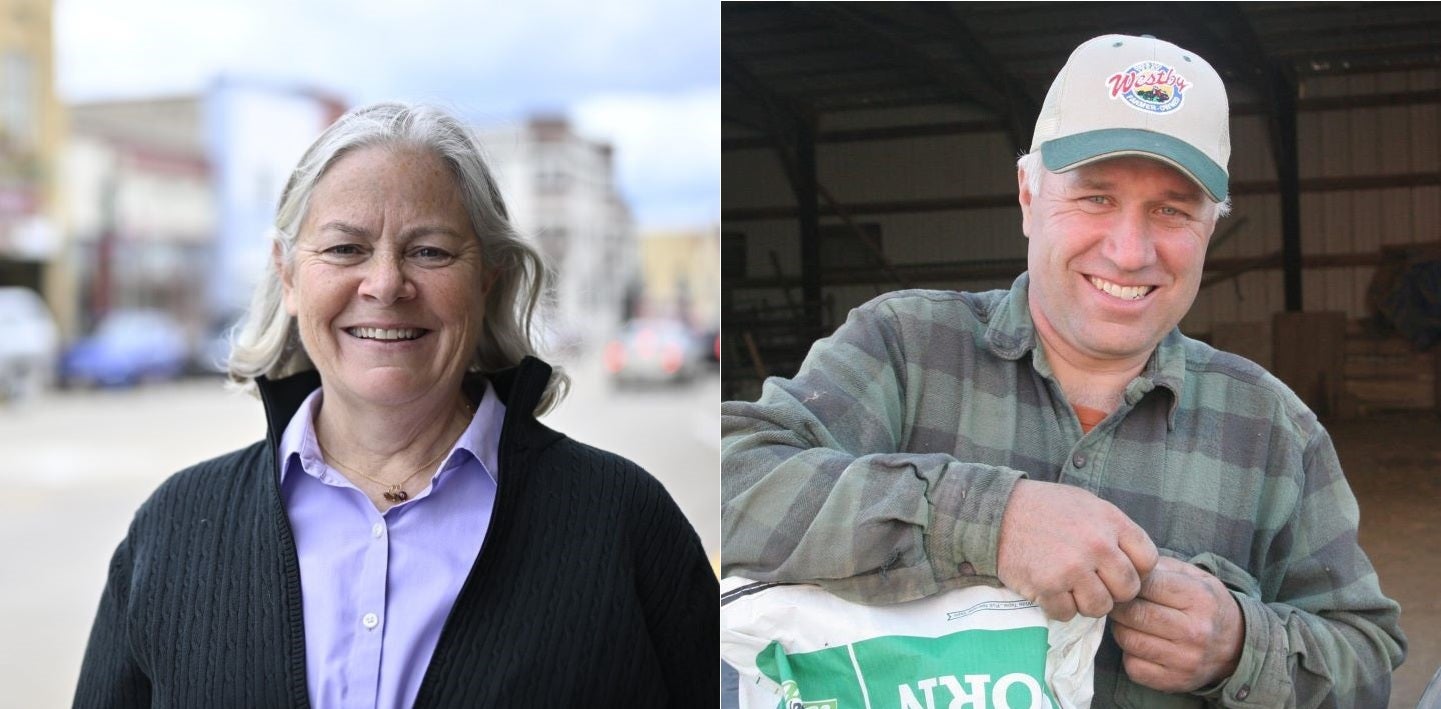
Republican state Rep. Loren Oldenburg of Viroqua said he has not heard voters express concerns about preserving democracy on the campaign trail. But Oldenburg, who has held the 96th Assembly seat since 2019, said he understands why it’s on some people’s minds.
“For what’s been going on, conspiracy theories and whatever that have been laid out ever since the 2020 elections — however people are perceiving that, it’s not surprising,” he said.
Oldenburg said the best way to preserve democracy is by protecting the right to vote. He said Wisconsin has “great election laws”, including the state’s photo ID law. That requirement has been criticized by Democrats for potentially driving down turnout among certain voter groups.
“I don’t feel like there’s a concern at this time, as far as we need to do something drastic in state legislation or state law,” Oldenburg said. “I think just keeping it as it is right now, I think we will be in good shape.”
Tara Johnson, former chair of the La Crosse County Board of Supervisors who launched a campaign for the 3rd Congressional District last fall before switching to the Assembly race, is running against Oldenburg. She believes the state’s new legislative maps are a step toward protecting democracy.
The maps, which were drawn by Democratic Gov. Tony Evers and approved by the GOP-led state Legislature, changed the makeup of the 96th seat, going from a Republican-leaning, mostly-rural district to a Democratic-leaning district that includes the southside of the City of La Crosse.
If elected, Johnson said she is committed to protecting the state’s current maps and changing the way they are updated in the future.
“It needs to be a non-partisan, fair process for drawing maps so that we avoid exactly what’s happened over the past 15 years,” she said.
Johnson said she would also work to protect same day voting registration, the use of absentee ballot drop boxes and access to voting locations for people of all abilities, measures she believes help ensure everyone who is eligible to vote has the opportunity.
She is opposed to the statewide referendum on this year’s ballot, saying the change “puts the burden on individuals instead of the burden on the state” to verify a person’s eligibility.
Wisconsin Public Radio, © Copyright 2025, Board of Regents of the University of Wisconsin System and Wisconsin Educational Communications Board.

